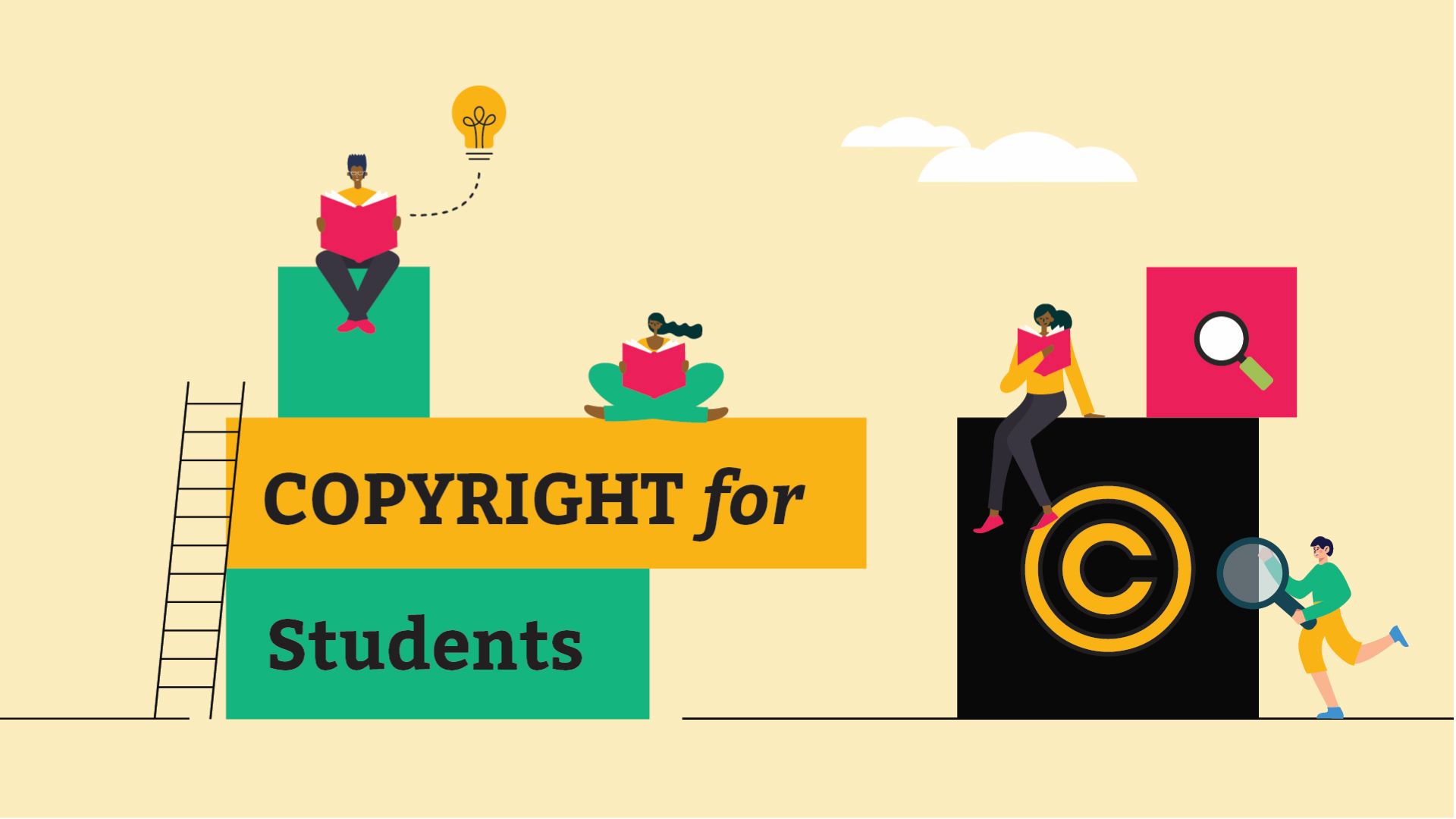Copyright for students

During your studies you are likely to need to make use of works that are protected by copyright. This includes the print and digital books and journals on your reading lists, as well as films, websites and other materials. As a student you are responsible for ensuring that your use of materials does not infringe copyright law.
You should start by familiarising yourself with our Copyright Essentials page. This provides an overview of what copyright is and why it is important, as well as information on copyright exceptions and licences.
If you are a postgraduate student, you should also read our information about copyright for researchers.
Copying from the library collections
The library subscribes to the Copyright Licence Agency (CLA) Higher Education Licence. This enables you to make limited copies and scans of materials covered by the licence. Under the terms of the licence, you can copy:
- One whole chapter from a book
- Two whole articles from a journal issue
- One short story, poem or play (not exceeding 10 pages in length) from an anthology
- One whole scene from a play
- One whole paper from a set of conference proceedings
- One whole report of a single case from a volume of judicial proceedings
Or 10% of the total publication, whichever is the greater.
Using copyright materials in your work
Sometimes you may want to use images or other copyright materials in your work, for example in a piece of coursework or a set of presentation slides. If you are discussing an image in your work then there is a copyright exception that allows you to reproduce images for Criticism and Review. You can read more about exceptions and how they work on our Copyright Essentials page.
If use of the image is for decorative purposes (for example to illustrate a PowerPoint), you should get permission to use the image or select an image that is available under an open licence. There is lots of freely available content and our Copyright Essentials page provides a selection.
Copyright in your own work
The University’s Intellectual Property Policy states that, in most cases, a student owns the copyright to their own work produced during a programme of study. There are exceptions to this, where the copyright in a student’s work passes to the University. These include the work of students who are in receipt of sponsorship, students whose work is a part of a funded research project and students who are also university employees and undertaking the work in relation to that employment.
Postgraduate research students are required to permit their work to be publicly available via Pure, the University’s research archive. Although students usually retain the copyright of any work submitted for assessment, the University reserves the right to retain such submissions.
Section 5 of the IP policy deals with the copyright of students’ work.
Copyright infringement and plagiarism
Copyright infringement and plagiarism are both serious issues, but they are not the same thing. Copyright infringement is sharing or reusing a work in copyright without the creator’s permission. Plagiarism occurs when you present someone else’s work as your own without proper attribution. This is a form of academic misconduct.